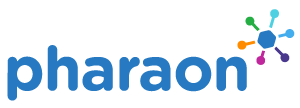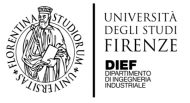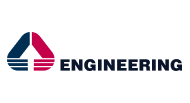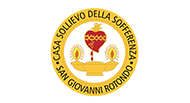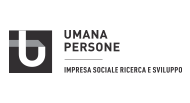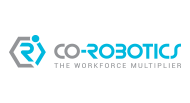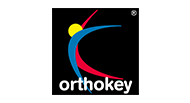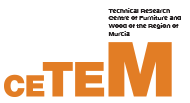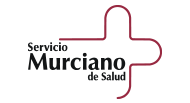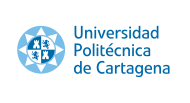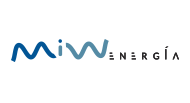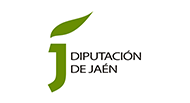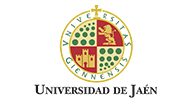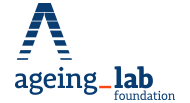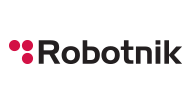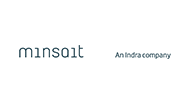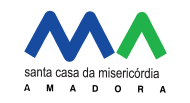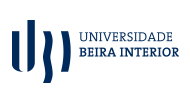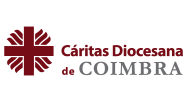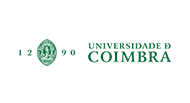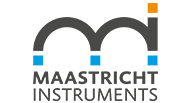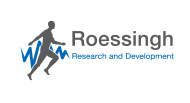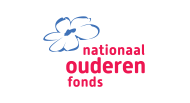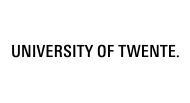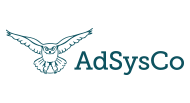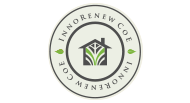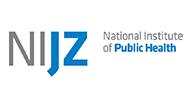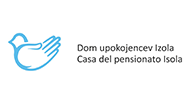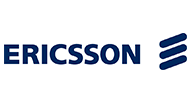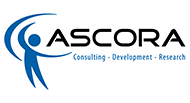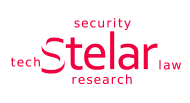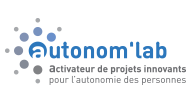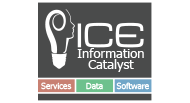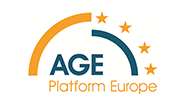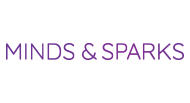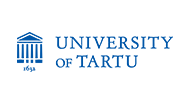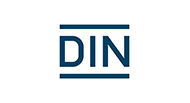The PHArA-ON consortium is a partnership of large, medium, and small enterprises, research organisations, universities, authorities in the field of health, public and private health service providers, social organisations, health institutes and standardisation bodies. The consortium was constructed to ensure representation and participation both internationally and across sectors.
Altogether 12 countries are represented by 40 partners. These partners will join to develop and deploy the PHArA-ON platforms in 5 countries. The cross-border collaboration will ensure a broad range input is included from across Europe, and that international concerns can be readily adapted to by the PHArA-ON platforms. Jointly, the consortium includes all relevant value chain segments, includes representatives from the appropriate stakeholder groups and RTDI organisations to provide bridges within and outside the consortium to other significant topics related to the built environment in Europe (e.g., UN SDGs).
University of Florence (UNIFI)
More about UNIFI
The University of Florence (UNIFI), established in 1321, is one of the largest organizations for research and higher education in Italy with about 51,000 students, 1,800 teaching and research staff, 1,600 technical and administrative staff and 1,600 PhD students and research fellows. Researchers at the University of Florence operate within 21 different departments and can benefit from approximately 40 research structures, including inter-departmental and inter-university centres, as well as specialized research, knowledge transfer and advanced training centres. Moreover, a significant part of the yearly budget is allocated to scientific research.
Recently, UNIFI has been ranked among top Italian Universities for the distribution of national research funds, and it is one of the most active Italian universities in terms of European projects and related grants. In the 7th Framework Programme, the EU funded about 140 projects for a total of over 40 million Euros. As of December 2019, the University of Florence has over 70 Horizon 2020 ongoing projects and more than 90 other EU projects in the field of education, cooperation and joint initiatives. The University also participates in several research programmes sponsored by international agencies, associations, foundations and other donors.
In Pharaon, the University of Florence is involved through the Department of Industrial Engineering (DIEF). DIEF has about 280 people including 61 faculty, 22 administrative and technical staff, and about 200 other researchers, including 71 PhD students, and 64 postdocs.
The research activities of the Department embrace the following traditional sectors of industrial engineering: “Bioengineering”, “Constructions and Mechanical Technologies”, “Design and Methods for Industrial engineering”, “Thermal Physics and Environmental Control”, “Industrial Plants and Services”, “Machineries”, “Applied Mechanics”, “Chemistry and Materials Technology” and “Mathematics”.
DIEF has competencies and experiences in the areas of Industrial Robotics, Mechatronics, Assistive BioRobotics, Internet of Robotics Things Marine Robotics, Exoskeletons for Rehabilitative and Assistive purposes, Computational Vision, Additive manufacturing, Autonomous Vehicles.
The Department supports and promotes partnerships for research and development activities with internationally renowned research centers and universities, and companies. The external funding of DIEF (contracts with companies and grants from competitive calls) is in the range of 10 MEuro per year with an annual rate in excess of 140 kEuro/faculty member.
The Pharaon project coordination will be executed under the responsibility of Prof. Filippo Cavallo, that is associated professor at the University of Florence from March 01, 2020, and that concretely has continued to actively work on the Pharaon project with the role of affiliate professor at Scuola Superiore Sant’Anna. Dr. Erika Rovini (assistant professor at UNIFI-DIEF) is the Project Manager of Pharaon, and Dr. Laura Fiorini (assistant professor at UNIFI-DIEF) is the Italian Pilot Coordinator.
Engineering Ingegneria Informatica S.p.A. (ENG)
More about ENG
Engineering Ingegneria Informatica S.p.A. is the head company of the Engineering Group, a global player and the Italian leader in digital transformation: from system integration to outsourcing, consulting and software. Engineering Group counts about 12,000 employees, 65 sites distributed in Italy, Germany, Spain, Belgium, Republic of Serbia, Brazil and Argentina and a consolidated revenue portfolio in 2019 of more than €1,2 bn.
ENG has a consolidated presence on all vertical markets and operates through its 4 business units – Public Administration & Healthcare, Telco & Utilities, Industry & Services, Finance – supported by cross-business units competence centers and by the Research and Innovation Department which, with its 450 resources, 70 live projects and about 40M €/year of investments, has the dual role of promoting research on software at an international level and technological & innovation transfer to the production cycle of the business structures.
It foresees a division fully dedicated to health, main IT partner for the Italian e-Health sector for 25 years, with an annual turnover of 80M€, more than 150 customers (60% of the public healthcare institutions) and almost 1000 people, including a dedicated team of sales managers, a dedicated tender office and a dedicated department of Research and Innovation department, IT Systems for eHealth (IT4H).
In this project, IT4H team will provide domain competence and support in the specific healthcare matters and business aspects, while the team involved in the integration aspects will be the Distributed Computing Lab, investigating on new and innovative models and technologies for distributed systems. During the years, the team acquired a deep knowledge in Cloud technologies to distribute and manage computing and storage resources. In the context of EU research projects, the group has acquired a significant experience in the coordination of the integration and release processes and in the adoption and customization of related tools.
Fondazione Casa Sollievo della Sofferenza (CSS)
More about CSS
The “Casa Sollievo della Sofferenza” (“Home for the Relief of the Suffering”) Hospital was inaugurated on May 5, 1956. It is considered one of the most important Italian hospitals and serves as an essential reference point for Central and Southern Italy. In accordance with its Founder’ thought, Saint Pio from Pietrelcina, its mission is the care and assistance of those who suffer as well as in scientific research, medical training, and healthcare professional education. Nowadays it is recognized by the Italian Ministry of Health as a Research Hospital carrying out clinical and health care activities in collaboration with the most important Italian and international research centers, particularly in the field of genetics, innovative therapeutics and regenerative medicine. It currently hosts 850 hospital beds, 200 residential elderly care beds, 2,400 employees, 57,000 yearly admissions and 9,500 surgeries per year.
The main task of CSS in this project is to support the technical partners of the project with the necessary know-how about the needs, expectations and the capacities of older people with different level of cognitive and functional impairment in order to develop impactful solutions helping to promote the healthy and active aging, thus improving the life of these subjects and their caregivers. The experience gained in other projects on the same subjects will help to better define the platform characteristic and behaviors, trying to enhance the acceptability, usability and user experience for the elderly. The deep knowledge in specific geriatric themes as Comprehensive Geriatric Assessment (CGA) and the evaluation and management of older patients with and without cognitive impairment will be an added value to the project. CSS will facilitate the design process of a robot module capable to dynamically detect health changes using a multidimensional approach.
UP Umana Persone (UP)
More about UP
UP- Umana Persone is a Network Agreement which currently includes ten private Companies – Cooperatives -, all based in Tuscany (IT).
At the beginning of 2019 UP acquired the legal status of “social enterprise”, according to Italian legislation D.Lgs. 112/2017, meaning that it carries out activities with social value.
Organizations aim to increase individually or collectivelly their innovative capabilities and competitiveness on markets by using the Network Agreement.
UP provides to social enterprises instrumental Research and Development (R&D) services.
The different companies taking part in the network elaborate a common collaborative program to share different kind of information and to work together within the scope of their businesses.
The main goal for Umana Persone is the innovation of not-for-profit organizations, especially as follows:
- finding new models to provide health and care services through innovative products and processes;
- planning new policies integrating public and private services in order to ensure an uninterrupted care for the elderly;
- lobbying local government bodies to test these innovative solutions for a better welfare system;
- supporting not-for-profit organizations structurally and culturally.
Moreover, UP mainly aims at improving knowledge, resources, information and communications among the Companies, through strong cooperation in activities, thus to riduse risks and to create new market opportunities.
Three thousand and five hundred people (i.e. nurses, social health operators, basic assistants, physiotherapists, psychologists, educators) are employed in UP’s companies and the number of end- users amounts to around sixteen thousand.
UP’s Research and Development addresses subjects like: Ambient Assisted Living Technologies; Private Markets; Social Finance; New legislation for not-for-profit companies and relationship between private entities and public government; New business development; Training.
Co-Robotics S.r.l (CORO)
More about CORO
CO-ROBOTICS is a start-up company willing to commercialise advanced technologies developed in the Assistive Robotics Lab of the BioRobotics institute at the Scuola Superiore S.Anna. In particular, the company is introducing a smart ring named Handy and a robotic platform for assistive and social robotics named MoVer-1.
Both the technologies can fit the PHArA-ON project purpose of testing innovative services for senior care in large pilot sites since wearable technologies and robotics could be used to deliver advanced social and sanitary services. In particular, the Smart Ring HANDY could be used to analyse upper limb and finger movements during rehabilitation procedures or for the clinical evaluation of diseases, as well as finely measuring physical and cognitive abilities of users. This class of wearable measuring devices could unobtrusively support clinicians in the monitoring of patients at home or in facilities.
The MoVer-1 robot is a modular and low-cost platform designed for social interaction and the physical support of the user in moving objects and goods. This kind of robot can friendly and safely interact with users providing visual and acoustic feedbacks and information, stimulate social interaction or support people moving heavy objects.
Orthokey Italia SLR (OKEY)
More about OKEY
ORTHOKEY is a leading company developing innovative solutions for healthcare domain. Current products include intelligent platforms for active ageing and orthopaedic domain, smart instruments for prevention, diagnosis and outpatient rehabilitation. It also provides Innovation Management services, including support for medical devices’ certification.
OKEY has reference expertise in national and European projects aiming to develop and deploy technological innovation in healthcare domain, and it is therefore established in addressing integrated impact assessment of the innovation and defining proper deployment strategies. It is currently involved in the MEFISTO project (GA No. 814444), where it is responsible for Impact assessment analysis and KPIs definition with reference to the Exploitation strategy definition in the field of smart nano-engineered affordable biomaterials for tissue self-healing and regeneration. Additionally, OKEY is WP Leader in the VOSTARS project (GA No. 731974, which concerns augmented reality in operating rooms domain. Within the project, OKEY is responsible for dissemination and exploitation strategies.
Core OKEY technical competencies cover different domains such as: data management and inference tools, software architecture, system integration, signal processing, mechatronics, MEMs technology, advanced micro-electronics systems,
The OKEY approach aims to match innovation with solutions effectiveness, flexibility and usability tailored to increase healthcare service outcomes and to reduce complexity and workload for operators. In order to it, Orthokey integrates its strong technological know-how and business expertise with innovation Impact Assessment and Innovation Management services. In order to reinforce this expertise, within the PHARAON project, OKEY will take advantage of its linked third party MEDEA S.R.L.
MEDEA’s services are based on a structured framework to generate evidence of the socio-economic impact of the innovation and to support replication and scaling-up strategies.
Following a co-design approach shared with ecosystem stakeholders, the MEDEA’s impact assessment framework supports definition, collection and processing of quantitative and qualitative data and indicators to generate evidence about the technological, clinical and socio-economic value of services and to identify determinants enabling scaling up strategies.
Technical Research Centre of Furniture and Wood of the Region of Murcia (CETEM)
More about CETEM
Created in 1994 as a business association, CETEM closely collaborates with a broad range of companies, especially SMEs, from different industrial sectors on Applied Research and Technology Development. Its main goal is the promotion of R&D, innovation and technology transfer throughout the industry in order to improve its competitiveness, while actively contributing towards their socioeconomic development.
CETEM main areas of expertise include Robotics, Product Engineering, Materials and Nanotechnology, and Electronic Embedded Systems. CETEM provides companies with cutting-edge technology support in an industry-friendly way and assists them in performing research and innovation activities.
The department of Embedded Systems carries out research in several areas closely related to Pharaon like Ambient Assisted Living (AAL), eHealth, AmI (Ambient Intelligence) and Home Automation. This work is based on its clear strength and focus on underlying technologies such as sensors and WSNs (Wireless Sensor Networks), IoT (Internet of Things), and wearable devices for non-intrusive monitoring. In general, it has a broad experience in the design and development of customized circuits for numerous applications. The department has developed complete solutions for IoT, pervasive monitoring in AAL, wearable devices and Health Monitoring, in various R&D projects, all of them closely related to Pharaon.
Moreover, the Embedded Systems Department has created two technologies that will be employed for the success of the Pharaon project:
- ASISTAE technology,which is an intelligent device that allows family members of older adults or people living alone to be informed of their habits and routines a day to have the peace of mind of knowing if a problem has arisen. For this, ASISTAE uses a circuit connected to a sensor that can be placed on a an armchair or sofa as well as in a bed and that detects when that piece of furniture is being used.
- AMICARE. technological platform developed to support and promote the independent life of people with intellectual disabilities, so that they can stay in their home as long as possible, perform their daily activities and ultimately increase their quality of life and self-esteem.
Murcia Health Service (SMS)
More about SMS
The SMS (Servicio Murciano de Salud) is the responsible for health care in the Region of Murcia, integrating a total of 11 hospitals, with 3,651 beds and 508 outpatient appointments of primary care, and providing healthcare to 1.47 million inhabitants (about 3.09% of the whole Spanish population). In the exercise of its functions, the SMS provide services and develop the following actions:
- Health Promotion
- Prevention of the disease
- Comprehensive primary care health
- Specialized Healthcare
It is noteworthy that the Region of Murcia is considered by firms specialized in the implementation and evaluation of health-related technologies, as a perfect location for a number of reasons including the following:
- Single-province region, which means faster political and administrative decision-making, saving time, money and resources.
- Region of Murcia has get the award of Reference site 2 stars in EIP AHA (European Innovation Partnership on Active & Healthy Ageing).
- The population typology and characteristics of the different health districts are heterogeneous and they are a perfect ecosystem to test innovations solutions and pilot projects in a really environment. The SMS is considered a perfect Living Lab to improve the innovation as has been shown in other main EU projects where participated, an example of them are project INCA (Inclusive Introduction of Integrated Care) and project FICHe (Future Internet Challenge eHealth).
Their experience in European eHealth projects convert the, into a key stakeholder for the internal search of challenges and need identification. Now SMS is involved in two exciting EU projects: ProEmpower (PreComercial Procurement looking for an integral solution to diabetic people) and InDemand (demand-driven health innovation). The technological infrastructure of the Public Health Agency of Murcia, which has a tradition of supporting innovation, allows for rapid, solid implementation of added value applications.SMS has computerized all primary care points since 2000 and its 11 hospitals since 2005. SMS has developed corporative tools as the EHR viewer called Agora plus.
Polytechnical University of Cartagena (UPCT)
More about UPCT
Universidad Politécnica de Cartagena (UPCT) is a public university with long experience and tradition in engineering and technologies studies. It places great emphasis on international cooperation and mobility, welcoming approximately 200 foreign students and lecturers, which an increasing number come from India, Singapore and Thailand. With over 90 R&D groups, this University aims to be not only a place for the dissemination of knowledge but also a source of scientific and technological creation. These groups carry out basic and applied research into a broad variety of fields: Manufacturing, robotics and automatics, environmental engineering, ICT, architecture, to mention just a few.
The GIRTEL (Spanish acronym of Telecommunication Networks Engineering) group is composed of lecturers and researchers from Communications and Information Technologies Department, with a recognized track of research activities in the last 15 years, Ph.D. students and under-graduate students of Telecommunications Engineering degrees. The main goals of GIRTEL are high quality research, training students and technology transfer. To do this, GIRTEL members actively participate in national and international research projects as well as contracts with companies. This close interaction with other leading academic institutions and the industrial sector makes the stay and training period at GIRTEL very attractive for students, especially those enrolled on a Ph.D. program. The goal of GIRTEL is not only to conduct pure academic research, often decoupled from real industry needs, but also to design and develop solutions with the potential of being adopted and deployed in real scenarios. The GIRTEL team seeks innovative publications, patent filing, and the implementation and exploitation of solutions through technology transfer.
My Energia Oner SL (MIWENERGIA)
More about MIWENERGIA
MIWenergia is an electricity retailer company focused on providing high added value services. Renewable energy technologies, electric vehicle, implementation of smart meters and the readiness of ICT, offers an opportunity to provide new services and generate new opportunities that goes really further in utilities traditional business model. With that in mind the strategy of the company is to position itself as a provider of innovative energy efficiency solutions.
MIWenergia is an SME located in Murcia, and operates in the whole Spanish territory.
The company has several business activities like the following:
- Electricity retailer, supplying a wide range of clients all over the Spanish market.
- Renewable Energy Generator. The company develops solar installations for self consumption to different clients
- Energy auditor. MIWenergia is an energy services supplier officialy registered.
- Energy management software. MIWenergia has developed an energy management software that controls and monitor energy consumption and provides additional information to improve energy efficiency.
- Provider of innovative solutions in energy efficiency field.
Diputación Provincial de Jaén (DPJ)
More about DPJ
Diputación Provincial de Jaén is a provincial government located in the region of Andalusia, Spain.
Diputación Provincial de Jaén promotes the economic, social and cultural development of the province and provides services to the 97 municipalities that comprise it, with special interest in those under 20,000 inhabitants.
It is organized in several departments: Economy, e-government, tourism, culture, sports, municipal services, infrastructure, employment, agriculture and the environment and social welfare.
The social welfare department (Área de Igualdad y Bienestar Social -AIBS-) is responsible for the gender, youth and welfare policies, that include community social services, and pay main attention to elder needs, by home assistance services, preventive projects or facilitating access to all kind of supports guaranteed by law for people in dependence situation.
Moreover, the AIBS manages a residence for the elderly, another one for people with disabilities and a provincial net of services for people who suffer addictions.
University of Jaén (UJA)
More about UJA
Jaén University (UJA) was created in 1993 and is in the Top 50 of the world’s best young universities according to THE (Times Higher Education). This ranking analyzes aspects such as teaching, research work, the university’s international outreach, or integration into industry. Besides, the UJA has received the distinction of Campus of International Excellence in the fields of Agrifood (CEIA3) and Climate Change (CamBio), plus it also leads the Andalusian CEI project on historical heritage PatrimoniUN10.
Jaén University has five faculties (Social and Legal Sciences; Humanities and Education Sciences; Health Sciences; Experimental Sciences and Social Work) and two higher polytechnic schools for engineering (Linares and Jaén) as well as an associated center (SAFA Professional School in Úbeda). In turn, these centers are organized into 35 departments. It also has three Postgraduate educational centers (Doctorate School, Advanced Study Center in Modern Languages and Postgraduate Study Center).
The Computer Science Department of the University of Jaén emerged in November 1993. The Computer Science Department groups the teaching and research developed at the University of Jaén in the field of Computer Science and Engineering. The Department participates in 6 centers of the University of Jaén with more than 100 subjects belonging to 20 Degrees and 10 official Masters, highlighting their participation in the titles of the discipline: Degree in Computer Engineering, Master in Computer Engineering and Master in Security Computing. It has internationally consolidated research groups which maintain close ties with researchers from other universities. In addition, many of its members are integrated into Research Institutes and Advanced Study Centers of the University of Jaén.
Ageing Social Lab Foundation (FAL)
More about FAL
Ageing Lab is an Andalusian foundation created in 2013 with the main purpose of becoming benchmark in the creation and transfer of knowledge about ageing in a positive way and the promotion of personal autonomy. It arises from the concern of professionals in the field of business and the University to build a society for all ages in a context of social change, which has as its most significant characteristics the aging of the population and the increase in life expectancy. Ageing Lab promotes synergies and professional networks between different stakeholders involved in the ageing process, reaching a broad social red of Public and private entities from management, intervention and research around ageing.
To reach this mission, it’s settled out different actions:
Projects
Ageing Lab is involved in five European projects: PHARAON, ESSENSE, REMIND, SHELDOM AND FRAIL, all of them sharing the same goal: improving the quality of life of adult people promoting active, comfortably and healthily, ageing. At national level the organization leads two initiatives, “E-INCLUSION”: avoiding the digital divide among adults population and “ACTIVA”: smart monitoring of elderly people in their environment based on leading-edge devices.
Diffusion and dissemination of science
Reaching to an extensive audience through the dissemination of a bimonthly digital magazine named Eiova, http://www.eiova.es.
Organizing a biennial International Congress, https://www.envejecimientoydependencia.com
Attending to relevant International Fairs and forums such as Transfiere, https://transfiere.fycma.com
Pioneering initiatives
Launching innovative activities such as the creation of a own social ethics committee, publication of a Dignified and Positive Ageing Intervention model used in Care Services for adults as a methodology of work, and running a living social lab initiative in real environments http://livinglabsocial.com
Professional networks
Participating in European Innovation partnerships such as:
European Cooperation in Science and Technology (Cost) https://www.cost.eu,
European Network of living lab https://enoll.org and
European Innovation partnership on Active and Healthy Ageing https://ec.europa.eu/eip/ageing/home_en
Robotnik Automation SLL (ROB)
More about ROB
Robotnik is specialized in the development of service robotic applications based on mobile robot platforms. Our main expertise fields include: logistics, inspection&maintenance, security&defense, agriculture and more.
Robotnik is a reference in Europe at the AGVS sector. We have a broad portfolio of mobile robots and mobile manipulators. We adapt our mobile robots according to customer requirements. We can modify its measures, integrate several sensor or differents robotic arms. Our mobile platforms have a standard optional components but specialized as sensors and actuators integrators..
Our staff offers a full scope of expertise and know-how. We have a multidisciplinary engineering team, which is qualified in several fields, among others, computers, manufacturing, industrial or telecommunications, mechanics.
Indra soluciones tecnologías de la información SLU (INDRA)
More about INDRA
Indra Soluciones Tecnologías de la Información, S.L.U also known by its commercial brand “Minsait” is one of the leading global technology and consulting companies and the technological partner for core business operations of its customers worldwide. Minsait is the leading firm of Indra in Digital Transformation Consultancy and Information Technologies in Spain and Latin America. Our business model is based on a comprehensive range of proprietary products, with a high-value focus and with a high innovation component. In the 2018 financial year, Indra achieved revenue of €3.104 billion, with 43,000 employees, a local presence in 46 countries and business operations in over 140 countries.
At Indra, we leave our mark in the digital transformation of the healthcare sector, combining expert knowledge with a suite of our own solutions, designed to cover all areas of healthcare and management. We respond to change processes in the sector, with the ultimate goal of improving the population’s health: We integrate, standardise and store any healthcare data, regardless of its origin, to display and share it within the healthcare ecosystem, improving knowledge and operations. We create an improved and omni-channel experience for the patients. With an increasingly informed and digital customer, create a unified care experience in public healthcare management: from the hospital to digital channels and the home. We efficiently manage healthcare network improving clinical quality and safety, avoid duplications of effort and improve overall healthcare outcomes for an effective continuity of care coordinated among the various healthcare and social levels. In PHArA-ON Indra will be leading WP3 Security interoperability solution that will address the adaptation of the PHArA-ON open platforms to achieve the pilot requirements through an innovative high-level ecosystem capable of integrating a wide range of technologies including IoT, wearable devices, and robotic solutions. Furthermore, Indra will provide specific product technologies in both of the Spanish pilots in Murcia and Andalusia.
Irmandade da Santa Casa da Misericordia da Amadora IPPS (SCMA)
More about SCMA
Santa Casa da Misericórdia da Amadora (SCMA) is a Non-profit organization founded in 1987, oriented to Human dignity in a sustainable and organized way. SCMA main mission is to provide, create and develop appropriate social services according to Amadora Community needs, promoting solidarity, quality of life and human dignity.
Objectives: Empowering individuals/families in a disadvantage position; Deliver Social Responses to the Community, suitable to the diagnosis of needs, on Educational, Ageing, Health and Social Areas; Develop Integrated & Proximity Services; Work in partnership with the 3 sectors of economy; Maximize internal/external social accountability; Transference of knowledge and good practices.
Nowadays, the Organisation has a work force of 503 employees and delivers daily support to 5800 persons, and delivers services in the following areas:
- Health- On health care, SCMA comprehends 2 main facilities: a medical clinic with 15 different specialities; a long-term care unit (which comprehends a unit for the rest of the carers). The long-term care unit delivers daily services to 30 clients and has a work force composed of nurses, physiatrists, psychologists, and social workers.
- Ageing- through its facilities: 2 Day Care Centres, supporting 100 seniors; 2 nursing homes, supporting 136 seniors; 4 home care support services, supporting 212 seniors, 7 days per week; and 1 assisted residential unit for 52 elderly.
- Education- SCMA has 3 Kindergarten for 125 children daily; and Luís Madureira School for 500 children daily. Moreover, SCMA provides after school activities for 1800 children daily.
- Social Support- with three main pillars: Care Center and Social Services of Amadora (C.A.S.S.A.), front line facility within and to the Community in order to boost the first assessment of needs, providing services daily to 80 persons; Social Campus: Integrated & Proximity Services, focused on 1300 persons depending on minimum income and on the community needs; Local Contract for Social Development-community project based on creating infrastructures and improving skills among vulnerable people.
University of Beira Interior (UBI)
More about UBI
The University of Beira Interior (UBI) is one of the most recent public universities in Portugal but it is also a landmark institution in the educational, research, innovation, entrepreneurship and engineering and health-related fields.
Over the years, the evolution of the number of educational programs and the number of students has been increasing, having surpassed the 7500 students from across the country and 800 from all over the world. Aiming to provide a solid educational and scientific background to his students in different fields of knowledge, UBI presents 27 first cycle programs, 47 second cycle programs and 26 third cycle programs.
The university presents various learning and research facilities, structured in 5 Faculties – Faculty of Sciences, Faculty of Engineering, Faculty of Social and Human Sciences, Faculty of Arts and Letters and Faculty of Health Sciences – and 14 research units that had been carefully implemented and range from aeronautics to computing, electro mechanics, health, mathematics, optics, education, psychology, telecommunications, textile and paper materials and management and entrepreneurship.
Regarding the human resources, UBI has currently more than 1100 employees, of which more than 600 are teachers and researchers. The mission of the University of Beira Interior is to “Promote high-level qualification, production, transmission, critique and dissemination of knowledge, culture, science and technology, through study, teaching and research”. UBI shall define itself as an alive and vibrant community, recognized for the quality of its performance in teaching, research and knowledge transfer, and with a strong commitment to the region.
Caritas Diocesana de Coimbra (CDC)
More about CDC
Cáritas Diocesana de Coimbra is a social non-profit organization (NGO) that supports people and communities in five districts of the Central Region of Portugal. It has nearly 90 centres (with 129 different services), 1000 workers and 450 volunteers and supports around 25000 people/year with social, health, education and pastoral care.
Its main intervention areas are; Education; Health; Social Support; Family and Community; Children and Youth at Risk; Ageing/older support; HIV/AIDS; Addiction; Homelessness; Community Intervention; Migrants and refugees; Training; Summer camps and Social Tourism.
As for older adults and health, Cáritas Coimbra offers 12 day care centres, 18 home care services, 5 nursing homes, 1 chronic disability / impairment home, 2 long term care units, 1 medical and rehabilitation clinic and 1 hotel with social tourism programs for senior citizens – with overall about 3500 users.
Cáritas Coimbra is actively involved in many regional, national and international projects and partners with local stakeholders of all sectors. It is a member of the Coordination Group and consortium of Ageing@Coimbra, an EIP-AHA reference site with 3 stars; the UE Digital Skills and Jobs Coalition, the Strategic Council and group 4 of RIS3 Centro – smart specialization strategy and coordinates the Portuguese ecosystem of ECHAlliance.
Is a founding member and current Vice-President of the European Covenant on Demographic Change, an organization that aims to gather local, regional and national authorities as well as other stakeholders in order to cooperate and implement evidence-based on age friendly-environments and is a partner and Main Coordinator on group D4 of the EIP-AHA – Age-friendly Buildings, Cities and Environments.
Cáritas Coimbra is also Coordinator of the Stakeholders Network SHAFE – Smart Healthy Age-friendly Environments, approved by the EC in 2018 and currently hosted in the HPP and Coordinator of the Portuguese Network on Smart, Inclusive and Age-Friendly Environments.
University of Coimbra- Marine and Environmental Sciences Centre (UC MARE)
More about UC MARE
The University of Coimbra (UC), legal entity, is a reference in higher education and R&D in Portugal. The offer in technological research highlights the excellence of work developed by the R&D units. UC stands out also on technology transfer being involved in the promotion of several initiatives, like IPN Incubator and Biocant, and in the creation of diverse technological spin-offs. The UC is today an example of dynamism in its constant search for improvement and enhancement of knowledge, research and technology, contributing decisively to the improvement of science, technology and to the enhancement of knowledge as an essential element of people’s lives.
UC takes part in Pharaon project through the Marine and Environmental Sciences Centre – MARE (UC MARE), a centre for research, technological development and innovation, with poles located across Portugal mainland and islands, including at the University of Coimbra. MARE was classified as Excellent R&D Unit by FCT. The objective of UC MARE is to seek excellence in the study of aquatic ecosystems and disseminate knowledge to support policies for sustainable development. This mission is achieved through scientific research, education, knowledge and technology transfer to industry, as well as through science communication, establishing collaborative networks at the regional, national and international levels.
Maastricht Instruments (MAIN)
More about MAIN
Maastricht Instruments BV is a private limited company originating from the engineering department of the Faculty of Health, Medicine & Life Sciences of the Maastricht University Medical Center+. The company was founded in 1998 and has grown into a specialized high-tech company providing high demanding customers with innovative technical solutions in the field of life sciences and medical.
Maastricht Instruments is a strategic company of Maastricht UMC+ and is providing customers all over the world with novel research equipment such as indirect calorimetry equipment, wearable healthcare solutions (devices and apps) and specialized life science tools.
The wearable sensors of Maastricht Instruments can measure a persons’ physical activity and posture with clinical grade accuracy.
Roessingh Research and Development B.V (RRD)
More about RRD
Roessingh Research and Development (RRD) is a research and development SME in the area of rehabilitation technology and telemedicine with strong formalized links to one of the largest rehabilitation Centres in the Netherlands (Roessingh Rehabilitation Centre) and the University of Twente. The mission of RRD is to carry out scientific research and contribute to its commercialization and implementation in clinical practice. RRD develops innovations in a multidisciplinary team and in close collaboration with all stakeholders (patients, informal and formal caregivers, academia, health care organisations and industry).
RRD has extensive experience in many aspects of the development of innovative technology supported health and care services from initial scenario development and requirements elicitation with all stakeholders, technology development (ambulant sensing, IT services platform, Decision Support, personal context aware coaching systems), user studies focused on usability, acceptance and user satisfaction, and large scale clinical evaluation studies up to implementation of new services in daily clinical practice. This experience has been gained in many large national and international projects.
RRD is as partner in various running European projects, like Council of Coaches, GOAL, Holobalance, SmartWork, and IMI-SPRINTT, responsible for the development and evaluation of self-management remote physical training programs as well as a daily life monitoring module to assess health status of older adults and patients with chronic diseases.
Stichting Nationaal Ouderenfonds (NFE)
More about NFE
The National Foundation for the Elderly (NFE), is a wellbeing organisation that promotes active ageing, age friendly environments and social inclusion of older persons in the Netherlands. NFE supports seniors through meaningful services that support improve empowerment and self-reliance of older people to prevention loneliness and social isolation. Services range from community transport services, to sports, cultural events, dinners, knitting clubs, befriending programs and a phone helpline, reaching over 35.000 older persons in the Netherlands.
NFE promotes senior rights and performs social research on cases related to quality care, senior discrimination, elderly abuse and senior gay rights. It organizes national campaigns and training and networking sessions to raise awareness and exchange best practices among professionals and volunteers.
The innovation department is looking continuously for new interventions and technologies that improve wellbeing and quality of life of older people. It has experience in user-centered innovation and iterative processes of development with the involvement of older persons in user interaction sessions, focus groups and interviews. It organizes pilot trials with older people living at home, to verify effects and impact on quality of life. It uses its large network of local welfare organizations to disseminate and leverage results of research projects onto society.
PhAra-On Project
NFE will organize a large scale pilot in PhAra-On, using its transport service for older people called BoodschappenPlusBus (BPB) as a basis. The BPB is a community transport service that runs at 87 communities in the Netherlands with 90 buses. The BPB focuses on cultural and social activities for older people that are not mobile anymore and can’t go out by themselves. It is a simple and tangible means to keep older people socially included, run almost entirely by volunteers at local level. In PhAra-On, NFE would like to investigate how technology can support this service be to make it more efficient, to support the local (volunteer) coordinators better, to connect it to its events program and to make it more accessible and easier to use for older people.
University of Twente (UT)
More about UT
The University of Twente (UT) is a young, entrepreneurial, technical research university. Over 3,200 scientists and professionals conduct pioneering research on nanotechnology, IT, biomedical technology, but also governance studies, psychology and geo-information / earth observation sciences. Research ultimately combines scientific excellence with a sharp eye for economic and societal impact: the UT is highly successful as business generator, with over 50 new spin-off companies annually.
The UT “Centre for Monitoring and Coaching” (CMC) is a research centre founded in 2015, that integrates the work of 3 different key disciplines, biomedical engineering, ICT science and behavioural science to create high tech solutions with a human touch. CMC aims to research, develop and demonstrate beyond state-of-the-art solutions for smart remote monitoring and artificial coaching and other services that support people with chronic conditions in their well-being. CMC has a specific focus and expertise on telemedicine and works with a range of industrial and clinical partners to develop and improve the intelligence and dependability of eHealth/mHealth systems and applications. An area of special interest is the multimodal human-computer interaction: from brain computer interfaces to social robots.
For a human to have real-time conversations with intelligent (virtual) agents, we jointly address three aspects: behaviour sensing, modelling and generation. We detect social cues, which are informative of the stance and intentions of the participant. These are used to model the interaction, and to generate the agent’s appropriate conversational behaviour, combining corpus-based analysis with pattern recognition, multimodal behaviour realization, and perceptual evaluation. An important application area are the user interfaces and user experiences in (mobile) e-health coaching systems. Another area of special interest and expertise is the coaching, including both artificial coaching based on mathematical modelling and reasoning and the behavioural models developed by behavioural and social science. CMC integrates both approaches into new models and self-learning personalised coaching strategies that are able to support behaviour change in a persuasive and effective way.
AdSysCo B.V (ADS)
More about ADS
AdSysCo is a driven ICT company with over 50 specialists and a passion for healthcare and wellfare. We know both the technology and the content of the work like the back of our hand. We support professionals and volunteers in working towards a future-proof, social society in which everyone can participate (inclusion) and where people can take their lives back into their own hands (self-efficacy). Our ICT solutions make everyday work in the industry easier and reduce the paperwork load. This frees up more time for the primary workaround current social issues. Our solutions also provide more insight into the impact of the work, making the added value to our society even more visible.
Innorenew CoE (IR CoE)
More about IR CoE
The InnoRenew CoE is a research centre that seeks to address the climate crisis through advancing sustainable construction and creating safe, healthy built environments for all users. The organisation engages with stakeholders from a wide cross section of society, to perform public and industrially funded research on a variety of topics that address sustainability and health in the built environment.
Human health in the built environment, sustainable construction, ICT in the built environment, and data science are the organisation’s key research areas related to the pharaon project. In this project, these research areas are merged to support safe, healthy, and less isolating environments for older adults, to encourage and support active and healthy ageing, and to support caregivers in providing more personalised and less intrusive care. The InnoRenew CoE will deploy expertise in healthy ageing, psychology, ICT, indoor environmental quality, and data science to support older adults and care providers.
The InnoRenew CoE will also deploy some of its own solutions including IEQ sensors and building interventions to improve occupant comfort at the Slovenian pilot site.
National Public Health Service of Slovenia (NIJZ)
More about NIJZ
The National Institute of Public Health (NIJZ) is the central Slovenian institution for public health practice, research, and education. Its academic staff works on various tasks covering the areas of epidemiology of communicable and non-communicable diseases, health promotion, health protection, health system research, and national coordination of preventive programmes in primary health care. It also functions as the central statistical authority in health. The main function of NIJZ is to provide research in the field of health, and to protect and increase the population health level by raising the awareness of the population and carrying out other preventive measures. NIJZ’s main activities are funded by the Ministry of Health and include national health statistics and research in the field of public health, including health care systems; activities to identify health threats and design measures for their control; designing and providing health promotion programmes and preparing a scientific background for health friendly policies, programmes, and measures for disease prevention.
In Pharaon project, NIJZ’s role will include identifying and making connections to national and regional programmes related with the objective of the project. Among other programmes, NIJZ will connect to the project Active and Healthy Ageing in Slovenia (AHA.SI) that was led by themselves. The data acquired in this project will provide insight into viable ICT integrations into habitats that can support and increase healthy and active behaviours. Besides connecting to other national and regional programmes, NIJZ will support the requirements definition for successful pilot testing related to health issues and indoor environmental quality, as well as contribute to the assessment of the health outcomes resulting from the Pharaon pilots. In further stages of the project, they will be indispensable in analysing and interpreting data related to health.
Izola Retirement Home (DUI)
More about DUI
Retirement home Izola is a public welfare institution for the care of the elderly aged 65 or more. Established in 1953 it has more than 67 years of successful operation and is one of the oldest institutions of that kind in Slovenia. In the Retirement home Izola there are all together 105 employees of which approximately 70% are professional staff and 30% technical staff (e.g. cooks, cleaners, janitors). It consists of three interconnected buildings on an area of approximately 6000 square meters.
Our retirement home houses more than 200 residents who are provided with basic, social, and medical care 24 hours a day. Experienced diabetologist take care of a diet suitable for the elderly and under supervision of work therapists many activities are organized for residents. There are also personal social workers, doctor and psychiatrist available on a daily basis. Being aware that the principles and methods of working with the elderly are continually developing, the management of the retirement home puts great emphasis on continuous professional development of employees. Furthermore, our retirement home is recognized as a learning base providing opportunity for practical training to high school and college students and enabling young graduates to acquire the necessary work experience.
Through numerous cultural and entertainment activities and events, our retirement home promotes volunteering, inter – generational exchange and collaboration with local community and NGOs.
As dementia is more and more present among our residents we take care of them by following the principles of personal monitoring, which allows residents to live without hindering their freedom of movement. Residents with dementia are housed in a department that is completely open and without technical or physical barriers. Recognizing the need for transition of work with people with dementia from medical to psycho-social approach we have successfully implemented the DEMENCA ACROSSLO project (2016-2018) having an important role as a lead partner. Apart from many activities aiming to increase knowledge of employees in the retirement homes and general public about dementia, the main result of this project was handbook with guidance how living environment should be adapted for people with dementia.
Ericsson Nikola Tesla d.d (ENT)
More about ENT
Ericsson Nikola Tesla (ENT) is a Croatian company that, as an associated company of the Ericsson Group, operates in the global ICT market. ENT is the largest specialized provider of telecommunications products, solutions and services in Central and Eastern Europe, as well as a provider of innovative ICT solutions related to health care, transport, state administration, utilities, and multimedia communication.
ENT employs over 2400 people and with focus on knowledge and innovation it is the leading Croatian knowledge exporter. Key activities encompass the following: 1) research and development; 2) implementation of e2e communication solutions and ICT solutions for industry and society; 3) local, regional, and global delivery of services; 4) marketing and sales network. The whole Ericsson Nikola Tesla Group employs more than 3000 people and has been in business for fifty-five successful years. Today, more than twenty years after Ericsson became its major shareholder, ENT is an expert centre in the field of information and communications technology and a significant constituent part of Ericsson in the Market Area Europe and Latin America. ENT e-Health systems department develops, provides and maintains large scale healthcare information systems as well as the personalized healthcare systems. ENT has developed, implemented and are still maintaining the Croatian primary healthcare integration system.
Ascora GmbH (ASC)
More about ASC
Ascora GmbH is an SME based in northern Germany. ASC is developing and selling software as an Independent Software Vendor with products that are used around the world. ASC is one of the leading providers of software apps in Germany with more than 12 Mio users and more than 3.1 active newsletter subscribers; applications include desktop applications as well as web and mobile apps. As such, ASC is very skilled in creating consumer-driven software solutions with high user friendliness, low error rate and adaptive system requirements.
ASC has broad experience in creating highly scalable and cloud-based systems including messaging, data management and the handling of big data aspects. Because of its large user base, servers of ASC currently manage between 100 and 150 Mio messages/month. The creation of flexible and elastic cloud-based systems and services is a key element of the company. Due to the consumer orientation of the company, its systems are required to be constantly available without downtimes and maintenance cycles requiring robust DevOps and availability mechanisms that ASC can provide. ASC gained broad knowledge in creating secure systems that comply with latest EU standards on privacy, security and legal aspects. Securing systems and protecting user data is a crucial element of Ascoras day-to-day business. Company systems are fully PCI certified and renewed on a yearly base.
ASC applies its knowledge in the consumer domain but also within several domains with a core focus on the eHealth area and eHealth and its solutions are used by large players in the market. Those four domains highly benefit from the high expertise with availability, security and scalability aspects that Ascora can provide. Ascora is involved in several projects within the research and innovation domain and acts as coordinator or key partner for several RTD projects and initiatives including the H2020 projects CREMA, ACCEPT and eTeacher and the FP7 ALFRED project in the eHealth domain, which has been recognized as one of the top 5 RTD ICT projects in 2015 by the EC.
As a fast-growing company, ASC has been awarded by Deloitte with the Technology Fast 50 Award for Germany in 2016 and with the national Top SME Employer award from FOCUS Business 2018. ASC is an active member of the EU Big Data Value Association (BDVA and also a key partner of the H2020 European Data Economy (EuDEco) CSA. Moreover, ASC is member of the NESSI ETP (Networked European Software and Services Initiative) and the NetWorld2020 ETP (European Technology Platform for Communications Networks and Services) as well as the NEM Initiative (Networked & Electronic Media). Ascora GmbH is a member of the Alliance for Cyber Security of the German Federal Office for Information Security (BSI).
Stelar Security Technology Law Research UG (STL)
More about STL
Stelar Security Technology Law Research is a start-up established in Hamburg (Germany) that aims to promote education and research through the implementation of scientific courses and research projects and the award of research contracts. We are specialised in research on legal assessment methodologies for “Privacy by Design” and “Data Protection by Design” of new security technologies and privacy management systems for manufacturers of ICT products and related service providers.
STELAR has extensive expertise in legislation, GDPR, data protection, privacy and fundamental rights management in European innovation projects and research projects on ICT and digital transformation (for example, in H2020 OPERANDO (DS-01-2014 ‘Privacy’), H2020 SHiELD (DS-03-2016), FP7 eWALL (ICT-2013.5.1)). In addition, our lead researcher has experience with the European consumer organisation for technical standardisation (ANEC) and the European Standardization Organizations CEN, CENELEC and ETSI and the International Standardization Organization ISO concerning security, data protection, privacy and eHealth standardisation.
In this project, we will carry out legal research on and coordinate the data protection and privacy requirements analysis and the monitoring of support of legal compliance by the PHArA-ON ecosystem design and development.
GIP Autonom’Lab (GIP-AL)
More about GIP-AL
Autonom’Lab is a Group of Public Interest (GIP) funded by Nouvelle Aquitaine Regional Council, the Health Regional Agency and the Caisse des Dépots (public investment bank). Our objective is twofold: to improve the health and life quality of the elderly and to match social expectations with opportunities for economic development that the demographic change could generate in our region through a user driven innovation.
To reach its objectives Autonom’lab has 4 missions:
- Support public or private actors to better answer to evolving needs of older people
- set good conditions for the development of a solid regional ecosystem with a strong involvement of end users in creating and developing innovative solutions (user centred approach)
- Monitor the evolution of different fields related to ageing to anticipate new needs
- Encourage the exchange of good practices among local stakeholders and also European ecosystems.
We address different topics like : Integrated health and social care, Training and development of skills for care workers sector, Smart friendly environments for elderly, Mobility, non Professional caregivers.
Autonom’lab bring to the Pharaon project the experience we gained locally and internationally in testing solutions for older people and health professionals and deploy on our territory under real conditions settings.
Information Catalyst for Enterprise, Ltd (ICE)
More about ICE
Information Catalyst (ICE) is a UK SME. Founded in the late 1990s and delivers expertise, consultancy, and innovative solutions in the field of Services, Data, and Software. ICE beneficiary includes its linked third party (100% owned) in Spain, Information Catalyst SL.
ICE is a specialist consultancy assisting partners to improve their business activities through cutting edge research and innovation, custom software development, and commercial consultancy services. ICE specialises in handling and processing of data, coming from heterogeneous sources in multiple formats and different domains. Our specialised solutions enable enterprises to remain competitive in a rapidly evolving domain.
ICE solution portfolio is composed of advance tools for master data management, business intelligence, process orchestration and analytics. The available tools are offered as standalone services or as an integrated ICE Data Platform, which harnesses the strengths of open-source community to cater for varying needs of users across multiple domains. ICE also provides support and services to leading organisations such as TIE, Vintura, Riverland, EAN International, Offis, the European Standards Institute (CEN), Ascora, and the EC. Key ICE personnel have been active in multiple large-scale EU projects; these include FOF orientated projects: CREMA, vf-OS, DIGICOR, ZDMP, eFactory, or RECLAIM as well as others such as Phara-ON, RED-Alert, CrowdHEALTH, DEMETER, or ELASTIC. In addition, ICE personnel have been active in multiple voluntary bodies; for example:
- Big Data Value Association (BDVA) where ICE has been a full Member and it has been providing and sponsoring resources such as the inaugural Secretary General and Secretariat services
- SME Board member of the Networked Software and Service Initiative (NESSI) where it has also been Steering Committee vice-chair and is currently the SME lead
- Several standardisation initiatives in ISO and CEN/ISSS, such as ISO10303-236, eBiz-TCF, funStep, etc.
AGE Platform Europe (AGE)
More about AGE
AGE Platform Europe is a European network based in Brussels (Belgium) of 120 organizations of non-profit organizations of and for people aged 50+ representing over 40 million older people in Europe. AGE works on a wide range of policy areas and research projects that impact on older and retired people, which include anti-discrimination, employment of older workers and active ageing, social protection, pension reforms, social inclusion, health, elder abuse, intergenerational solidarity, research, senior tourism, accessibility of public transport and of the build environment, and new technologies.
The purpose of AGE work is to voice and promote the interests of the 190 million inhabitants aged 50+ in the European Union and to raise awareness of the issues that concern them most. AGE seeks to give a voice to older and retired people in the EU policy debates, through the active participation of their representative organizations at EU, national, regional and local levels, and provides a European platform for the exchange of experience and best practices. It also aims to inform older people on their rights as EU citizen or resident and on EU policy making processes and recent EU policy development.
AGE is involved in key European initiatives such as the European Innovation Partnership on Active and Healthy Ageing (EIP AHA), the Active Assisted Living Joint Programme, the JPI More Years Better Lives, and in several other EU wide networks such as the European Anti-Poverty Network (EAPN) and the European Public Health Alliance (EPHA), as well as the Sector Forum on Smart and Sustainable Cities and Communities (SF SSCC). AGE Platform is also involved in the SAGA – Strategic Advisory Group on Accessibility and cooperates with CEN-CENELEC, European Standardization Organizations, to ensure older people’ views are embedded into the implementation of the European mandates in support of accessibility (M/376 accessibility requirements for public procurement of products and services in the ICT domain; M/420 in support of European accessibility requirements for public procurement in the built environment; M/473 to include ‘Design for All’ in relevant standardization initiatives). Moreover, AGE cooperates within the ICT Standardisation Platform, a European Advisory Expert Group on all matters related to European ICT Standardisation and its effective implementation.
Furthermore, AGE Platform currently manages the Secretariat of the European Covenant on Demographic Change, a European non-profit association gathering public authorities, academia, civil society organisations and business to implement age-friendly environments.
MINDS & SPARKS GmbH (M&S)
More about M&S
MINDS & SPARKS (M&S) is an independent research organisation based in Vienna, Austria fostering science, innovation and technology to address major challenges and develop new methods and solutions for a better society. M&S creates strong connections between science and society using interdisciplinary approaches, promoting best practices and raising awareness on research and innovation achievements. Furthermore, the organisation focuses on improving sustainability of research and innovation outcomes especially of public funded projects to ensure that spent resources lead to permanent positive impacts for the society as a whole.
M&S is formed by a team of highly skilled personnel which bring many years of experience in designing, leading and implementing research and advisory projects and it hosts market researchers, technical consultants and engineers which have broad knowledge along the development cycle of technical solutions. The organisation is involved with various research and innovation stakeholder networks including research organisations, academic institutions, civil societies, NGOs, governments, and industry in various sectors such as safety and security, health and care, energy and environment, or information and communication technologies. M&S is an experienced dissemination, exploitation and communication partner, where the primary goal is to deliver strong value and support to projects at national and European level.
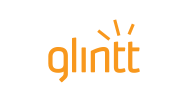
Glintt Healthcare Solutions (GLINT)
More about GLINT
Glintt is an IT provider of healthcare solutions with 10 offices located in 6 countries. Glintt has a team of more than 1000 highly qualified professionals with extensive knowledge in the healthcare area. Our know-how in the fields of Pharmacy, Nursing, Biomedicine, Technology, IT Systems, Mathematics and Management allows us to meet the needs of our clients.
Nowadays, more than 200 hospitals and clinics use our solutions, from patient admission to prescription, recording of consultations and medicinal products, invoicing and contacts between patients and the healthcare facility. Glintt is an active partner of EIT Health (www.eithealth.eu), a network of health innovators backed by the EU delivering solutions to enable European citizens to live longer, healthier lives by promoting innovation. Glintt has been awarded the Quality Management System certification according to the ISO 9001:2008 standard, holds a corporate membership of the International Institute of Business Analysts and integrates several Technological Competency Departments certified by: IBM, Microsoft, Oracle, Spring, Jasper, SAP, Java, Sun, RUP, ITIL, SixSigma, Scrum, PMI, IPMA, Talend, Pentaho, Liferay, etc.

SenLab IoT Solutions (SENLAB)
More about SENLAB
SENLAB is an innovative high-tech start-up from Ljubljana, Slovenia, EU, a developer of Internet of Things (IoT) solutions (Smart City, Smart Building & Home Automation, Industrial 4.0, Transport & Logistics & Surveillance, Heath and Senior Care) and self-deployed Instant messaging / conferencing solutions. SenLab’s key team has more than 50 years of experience combined with smartphone development and holds multi-awards for their IoTool – a smartphone IoT Client / Gateway / Cloud / API solution.
SENLAB would introduce in the project IoTool, IoChat and SeniorsPhone; the service and the IoTool app have now been updated and thus enable your smartphone to receive data from the Cloud in the form of JSON files. This enables the user to define his own data structure and then parse it as they see fit in their own extension. IoChat uses a server installed and maintained in a location of your choice. SeniorsPhone offers integrated SOS and location services for users and their predefined contacts and carers. Notifying your loved ones that you need help is just one click away. All communication is under your control, isolated, and all clients are on your local network. However, if you wish to connect clients to the Internet (outside of the institution), the server also needs an Internet connection. Privacy and security, however, are still retained since the users communicate with each other directly ort hrough your server.
SenTab Estonia (SENTAB)
More about SENTAB
Sentab Estonia is a tech company focused on providing intuitive social and health connectivity platforms for older adults. Our products empower older adults living at home or in assisted living setting by connecting them to social media, health and care services through their TV set. TV is the most ubiquitous technology platform with older adults to date and preferred by them. Sentab makes any TV “smart” by offering a companion media streaming box that comes with powerful features tailored towards older adults, their families and carers. It caters an easy to use slick interface that leverages inclusive digital communication (video calling, media sharing etc), and preventative and telehealth features to induce positive health-conscious behavioral change. We believe that in-home health technologies and applications have to be designed in such a way that they focus on user experience and engagement, only then they can also assist with in-home remote health and social monitoring and management.
Sentab’s platform strives for such an engagement through social and entertaining media and communication features, seamlessly integrated with digital therapeutic and home monitoring services. Apart of video calling, we offer medical reminders, cognitive games, social interaction, monitoring of physical activity and environment, peer communities of interest, free educational health content, newsfeeds, media posting etc. We are also the first in the world to index the behavioral data of the user through their social, cognitive and physical activity and feed it back to a person to stimulate healthy living behavior.
Sentab has a built out its own server back end infrastructure and front-end applications, which will be brought into the current project as state-of the art solutions that can be integrated with wider selection of other interfaces made available to older adults during the Phara-ON pilots.
University of Tartu (TARTU)
More about TARTU
The University of Tartu (UT), founded in 1632, is today the only classical university in Estonia. UT has about 15000 students and 1800 academic staff members. It is the highest-ranking university in the Baltic States, according to both Times Higher Education and the QS World university rankings. Research at UT focuses on subjects as diverse as medicine and philosophy, genetics and computer science. UT is Estonia’s leading centre of research and training. UT includes nine faculties, four colleges and several regional development units. UT has 71 partner universities in 27 countries.
UT’s Institute of Computer Science has about 100 academic and research staff members and 60 PhD students. It conducts research in the field of software engineering, information systems, data science, distributed systems, natural language processing, bioinformatics, and cryptography. The institute was ranked as the #1 computer science department in Central and Eastern Europe by the Times Higher Education Subject Rankings 2020. The Software Engineering and Information Systems research group at the Institute of Computer Science conducts research in the fields of software analytics, business data analytics, social network analysis, business process management, sociotechnical systems and software process management.
The main research area of Prof Taveter and the research groups led by him has been method engineering for eliciting and representing requirements for sociotechnical systems and designing and prototyping such systems. In compliance with this, the Institute of Computer Science of UT will lead the work package WP2 where a framework is set up and applied for eliciting, specifying and validating the organisational and technological requirements for the pilots, for co-designing solutions for each pilot and validating the solutions according to this framework. This will ensure there is a clear and precise set of requirements in place, and that each pilot is specified similarly.
Deutsches Institut für Normung (DIN)
More about DIN
DIN is a non-profit organization recognized as a German national standards body representing Germany in European and international standardization activities. DIN prepares standards as services for the economy, state and community.
DIN supports research, development and innovation projects based on the concept of R&D Phase Standardization. This approach covers an early identification of standardization potential of products and services, the establishment of standardization processes and the public availability of the project results. Furthermore, this ensures an enhanced and accelerated sustainable transfer of knowledge and technology in innovative fields. DIN holds the infrastructure to support the standardization processes to perform the analysis of existing standards, specifications and other non-formal standard-like documents.
Being the national standards organization for Germany, DIN is placing a greater focus on supporting the interests of German stakeholders in services standardization, and in introducing new topics in the services industry to standardization as early as possible. Since DIN is one of the leading national standardization bodies within Europe DIN has a comprehensive overview of ongoing standardization activities, which helps to hold the project up-to-date in conjunction with ongoing standardization activities. DIN has been project partner, also several times work package leader, in more than 30 Horizon 2020 and FP7 projects and supported the transfer from project results into gap-analysis, roadmaps or standards.
Tecnologie Informatiche e Loro Aplicazione (UNINFO)
More about UNINFO
UNINFO is the UNI’s Associated Body to whom UNI (the Italian Standards Organization) has delegated the Information Technologies field. UNINFO is a not for profit association which represents Italy at the European and international level for the IT sector and organizes the participation of national delegations in the standardization work, with the aim of:
– promote the harmonisation of ICT standards necessary for the functioning of the single market by transposing CEN standards and adopting ISO and JTC/1 standards
– collaborate, in compliance with UNI regulations, in the drafting of European (CEN) or international (ISO and ISO/IEC JTC/1) regulations, possibly drawing up new ones to be brought to the attention of European and/or international standardisation bodies.
In addition, UNINFO is full member of ETSI.
Briefly, UNINFO defines national standards, and participates in the technical activity in Europe (CEN and ETSI) and internationally (ISO and JTC1). It provides timely information to the national stakeholders on the international activity, fosters participation, and provides the environment for the definition of the national positions.
The competence required to promote the activities in each specific sector is ensured by the presence of experts representing the interests of all types of market operators participating in the standardisation work within the UNINFO Technical Committees.
The areas where UNINFO is most active today include software and systems engineering, programming languages and systems interfaces, documents processing, electronic signature, biometrics, smart cards, multimedia, audiovisual coding and representation, intelligent transport systems, geographical information, user interfaces, e-Learning, industrial automation systems, financial and bank services, automatic identification and data collection. The standardization activity in some areas is particularly significant: cybersecurity, e-health, electronic invoicing, professionalism and skills for ICT, Artificial Intelligence and Blockchain.
UNINFO members are companies, professionals, associations, public bodies, research centers, educational and academic institutions, universities, the third sector and some non-governmental organizations, which taken together form a multi-stakeholder technical platform of the ICT world that is unique at the Italian national level.
